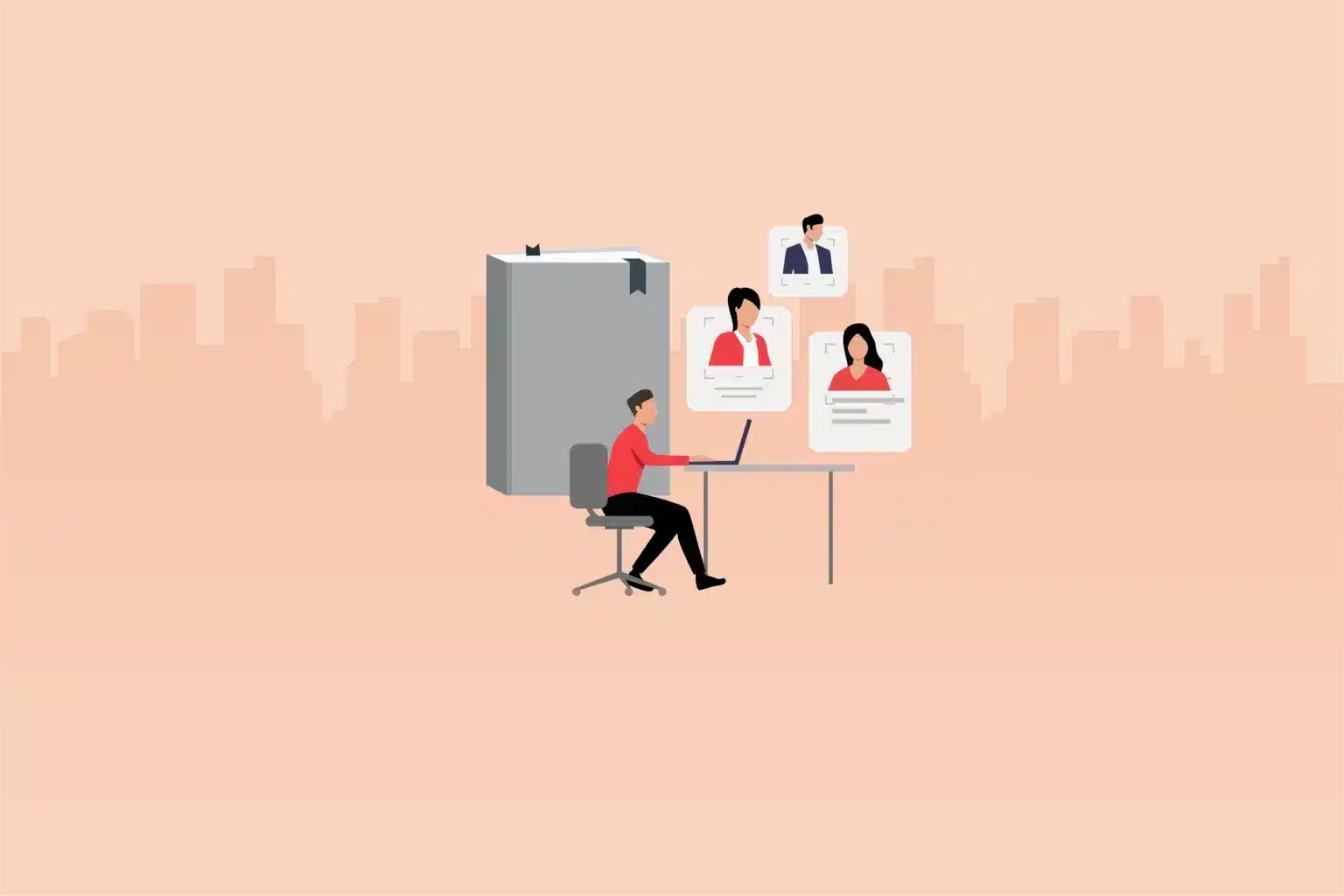Recruiting top talent may be an uphill battle in the highly precise and specialized field of civil engineering. Luckily, there is a simplified way to screen candidates using civil engineering exams, so only the most competent ones move on in the employment process. These civil engineering tests can greatly ease the screening process for candidates in the following ways:
Streamlining the process of civil engineering exam screening
The goal of streamlining the screening process for civil engineering candidates is to find and evaluate the best candidates for open positions as quickly as possible. Streamlining the screening process for civil engineering candidates is the focus of this all-inclusive guide:
1. In-Depth Job Analysis:
First things first, you need to examine the needs of the civil engineering job in great detail. To be successful in this position, you must have the following technical abilities, credentials, and experience listed. Building a reliable screening procedure requires first having a firm grasp of the duties and responsibilities of the position.
2. Develop Individualized Screening Criteria:
Utilizing the job analysis as a guide, develop screening criteria that are uniquely suited to the civil engineering post. Evaluations of pertinent experience and credentials, tests of technical abilities, and problem-solving activities may all be part of this.
3. Put Pre-Employment Testing into Practice:
Create and administer pre-employment civil engineering test tailored to the civil engineering profession. Skills in critical thinking, communication, technical software expertise, and general knowledge may all be evaluated in this way. It is important to select assessments that fairly gauge the skills needed for the job.
4. Use Technology to Automate Screening Processes:
Use technology to automate applicant interactions, skill evaluations, and resume processing, among other screening processes. The screening process may be made more efficient and the evaluation of candidates more consistent with the use of applicant tracking systems (ATS).
5. Use Structured Interviews:
To further evaluate candidates for civil engineering positions, use structured interviews with predetermined questions. To learn about a candidate’s problem-solving style and previous work experience, behavioral interviewing methods are used. You may learn a lot about a candidate’s cultural fit and soft skills through structured interviews.
6. Add Technical Challenges:
When screening applicants, use technical challenges or case studies to test their problem-solving skills about actual engineering difficulties. To test the analytical and decision-making ability of candidates, these challenges might mimic situations that are typical in civil engineering projects.
7. Evaluate Cultural Fit:
When evaluating applicants, think about how well they mesh with the company’s values, culture, and team dynamics. To make sure that applicants have the right technical abilities and can also fit in well with the team and the company culture, it’s important to test their cultural fit.
8. provide applicants Timely Feedback:
At each step of the screening process, provide applicants feedback that is both timely and constructive. Candidates have a more positive experience and view of the recruiting process as a whole when they can express their strengths and opportunities for growth clearly.
9. Ongoing Improvement:
Take into account the opinions of hiring managers, recruiters, and applicants while reviewing and improving the screening process. Optimize the efficacy and efficiency of civil engineering applicant screening by identifying improvement areas and implementing improvements.
By putting these ideas into practice, firms may streamline their applicant screening processes for civil engineering positions while still finding and hiring the most qualified individuals. When it comes to civil engineering projects, having high-performing teams that can complete the work successfully depends on thorough screening procedures.
Select Appropriate Examinations for Civil Engineering
It is critical to select valid civil engineering examinations to evaluate candidates’ abilities fairly. When deciding which exams to take, keep the following in mind:
Preliminary Evaluations:
Think of civil engineering tests that assess applicants’ expertise in certain branches of civil engineering, such as environmental, geotechnical, transportation, or structural analysis. Some examples of possible test formats include multiple-choice questions, problems to solve, and simulations of various scenarios.
Practice Problem-Solving Skills:
Try to find a free online civil engineering test that measures how well applicants can break down and solve difficult technical challenges. Depending on the type of civil engineering exercise, applicants may be asked to show their quantitative prowess, innovative problem-solving talents, and capacity for critical thinking.
Assessments of Software Competence:
You might want to think about giving candidates exams to see how well they do with certain engineering software programs if the job calls for it. The capacity of candidates to make appropriate use of software for civil engineering projects can be evaluated through practical tests or simulations.
Problems with the Design:
When hiring for a position that requires you to plan and design civil engineering projects, design challenges can be a useful evaluation tool. Give the applicants real-world design jobs or projects to work on, and evaluate their skills in coming up with all-encompassing solutions that take things like sustainability, cost-effectiveness, and structural integrity into account.
Real-World Models:
Candidates are allowed to showcase their problem-solving abilities and application of engineering concepts through practical simulations. Think of models that imitate typical problems or activities in civil engineering, including examining building loads, creating transit networks, or doing site investigations.
Exams for Coding and Scripting:
The use of coding exams to evaluate candidates’ knowledge of programming languages and their ability to script in such languages is something to think about when hiring for positions that need scripting or programming, such as computational analysis or data visualization. Candidates’ capacity to use programming tools to efficiently solve engineering issues and generate efficient code may be assessed by these civil engineering tests.
Evaluation of Soft Skills:
Candidates’ communication, collaboration, and leadership qualities are examples of soft skills that should be evaluated alongside their technical knowledge. Candidates’ social abilities and compatibility with team-based engineering settings can be better understood with the use of exams such as behavioral assessments or situational judgment tests.
Civil Engineering Test-based case studies
Case Study 1: Tailored Technical Assessments
Company Name: Bridge Engineering Solutions
Context: Bridge Engineering Solutions is an industry leader in the planning, design, and construction of bridges. They are in the market for a structural engineer who specializes in designing bridges.
Method: Bridge Engineering Solutions creates a specialized technical test based on bridge engineering concepts to simplify the screening process. Questions on bridge-specific design issues, structural analysis, and load calculations are also part of the test.
The technical evaluation is an integral component of the screening procedure and must be completed by all candidates. The free online civil engineering test is useful for finding people who have worked on bridges before and have a solid grasp of structural engineering concepts. By using this method, Bridge Engineering Solutions can quickly evaluate applicants’ technical competence and choose the best ones to move on with.
Case Study 2: Practical Simulations
Geographical Dynamics, Inc.
As a background, Geotechnical Dynamics is a consulting firm that focuses on geotechnical engineering for building projects. A geotechnical engineer versed in foundation design and soil mechanics is required.
Geotechnical Dynamics uses simulations to test potential employees’ knowledge of soil mechanics and foundation design as part of their hiring process. Candidates will be given synthetic soil samples and will be required to assess their characteristics, calculate their bearing capabilities, and suggest appropriate foundation types for made-up building projects.
Findings: As a component of the screening procedure, candidates take part in the practical simulations. Candidates’ abilities to properly apply geotechnical engineering concepts to real-world circumstances can be evaluated by Geotechnical Dynamics through the use of simulations. Geotechnical Dynamics finds the best people for their projects by testing their practical talents and problem-solving ability.
Case Study 3: Software Proficiency Tests
Structural Innovations is the company name.
Historical Context: Structural Innovations is an industry leader in the research and design of commercial and residential building structural systems. They need a structural engineer who is well-versed in structural analysis and design software like SAP2000.
Method: To determine whether a candidate is competent in utilizing SAP2000 for structural analysis, Structural Innovations gives them software competence exams. Modeling and analyzing structural components, as well as interpreting analysis results, are some of the practical activities that candidates are expected to perform.
Findings: As a component of the screening procedure, candidates are required to take software competence exams. These exams let Structural Innovations gauge how well applicants know how to use SAP2000 for structural analysis. Structural Innovations may employ engineers with strong software abilities who can efficiently use the necessary tools for structural analysis by testing their software proficiency.
Make sure the civil engineering exams you choose measure the skills and knowledge needed for the job by carefully reviewing the job description. Make educated recruiting decisions for your civil engineering team by using suitable exams to assess individuals’ abilities.








